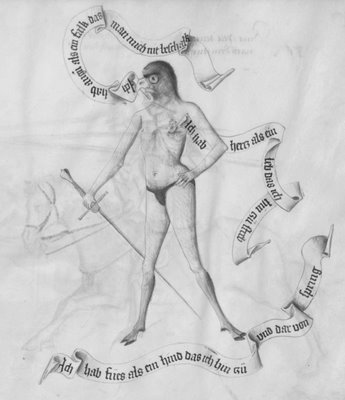
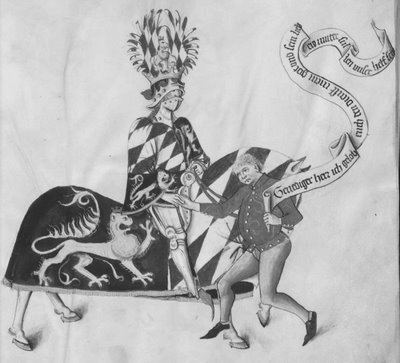
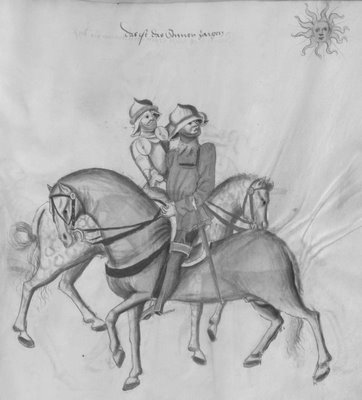


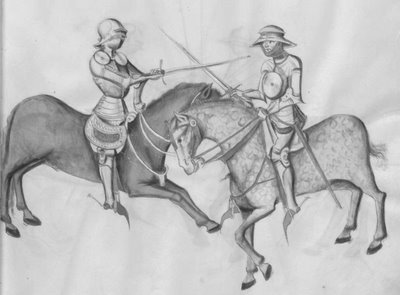
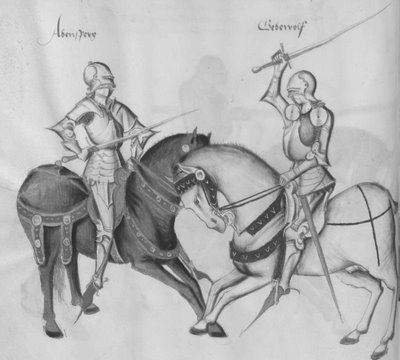
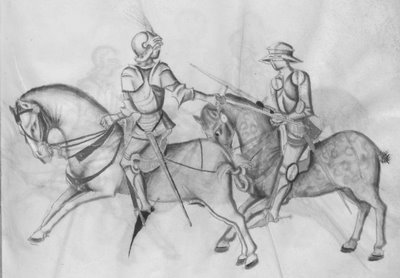

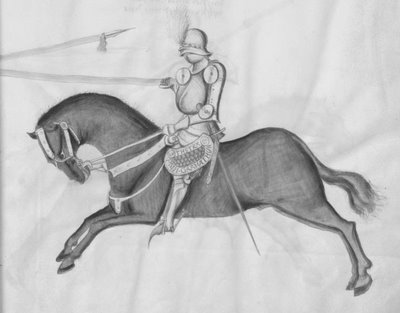
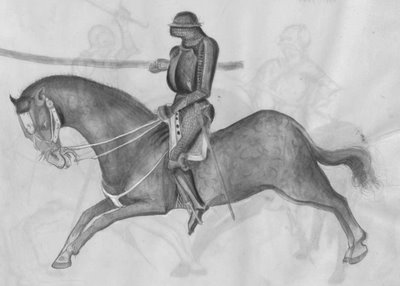
 'Kunst des Fechtens' (the Art of Fighting) refers to the traditions and written manuals associated with the german school of combat techniques in the middle ages. Among these Fechtbücher (fight manuals) is the untitled fechtbüch of Paulus Kal, depicted above and in the previous post, which is online at the Bayerische Staatsbibliothek. (produced sometime before 1479)
'Kunst des Fechtens' (the Art of Fighting) refers to the traditions and written manuals associated with the german school of combat techniques in the middle ages. Among these Fechtbücher (fight manuals) is the untitled fechtbüch of Paulus Kal, depicted above and in the previous post, which is online at the Bayerische Staatsbibliothek. (produced sometime before 1479)Paulus Kal was a Master fencing/combat instructor employed in the mid-15th century by a Bavarian Duke and he was also a contemporary and rival of the more famous Hans Talhoffer. Both produced fechtbücher associated with the legendary 14th century Grandmaster swordsman, Johannes Liechtenauer. And it is from Kal's writings that we know something of the manner by which the secret Liechtenauer techniques were disseminated. (geneaology of fight schools)
There is little online about Kal and in fact I was reminded during searching that it's not simply information overload that can be a problem using the internet - information duplication makes searching frustrating. There are many sites that simply reproduce a single line entry on Kal from wikipedia and one other encyclopedic source - I kept seeing a link to the Bayerische manual above in a bunch of sites; the very same link that I had added to the wikipedia entry last night.
Kal's manual is about 200 pages long with beautiful and detailed illustrations about fighting on horseback with sword and lance, on foot with lance, sword, dagger and poleaxe, duelling with shields; sword and buckler techniques and wrestling, on virtually every page. There are a couple of pages regarding the provenance of the work at the beginning of the site but I don't read german and couldn't copy it from an image into a translator. So I'm unsure whether the work was first produced in black and white or not - the digitized images are a little 'different' to my mind and the subtlety of the shading suggests to me that it probably was in colour; the link below suggests this but they are not categorical.
I swear that it's by amazing coincidence that a limited edition leather bound version in colour of this work - 'In Service of the Duke' - is about to be released by Chivalry Bookshelf. They have example pages for viewing and you can read snippets of commentary if you squint.
- The most reliable sites with respect to medieval combat are: ARMA and AEMMA.
- I found this short essay by Greg Mele worth reading.
- 'The Secret History of the Sword' and The Academia della Spada have some useful articles.
- Fencing with the Longsword site by Michael Rassmusson.
- Previous combat entries here (including further links).
No comments:
Post a Comment